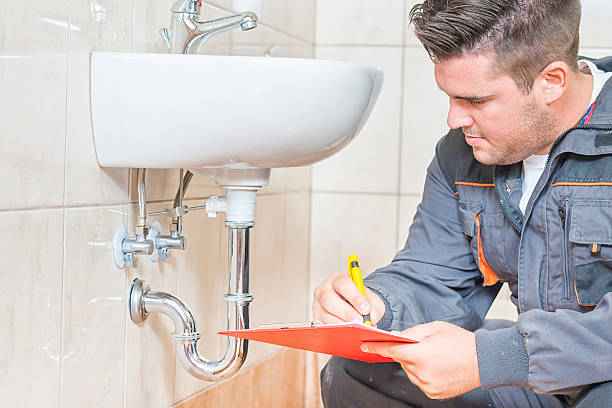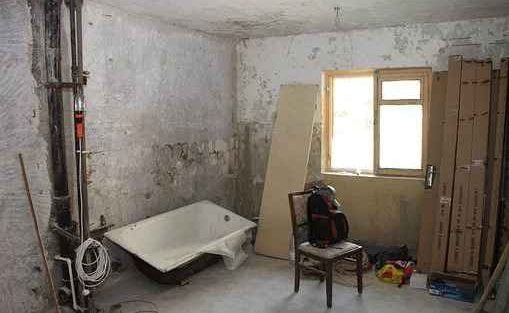Last updated on March 27th, 2024 at 11:53 pm
Buying a house is a significant milestone in any person’s life. It is an investment that requires careful planning and consideration. To ensure a smooth and hassle-free home-buying experience in Arizona, here are some essential steps you should take before signing on the dotted line.
Table of Contents
Assess Your Financial Situation
Before you start house hunting, evaluate your financial health and speak with an Arizona lender like District Lending to qualify you for a loan. Determine your budget, considering factors such as income, debts, and expenses. It’s essential to have a clear understanding of your credit score as it can impact the interest rates and the types of loans that you may be eligible for. Create a detailed financial plan and establish a timeline for achieving your home-buying goals.
Save for a Down Payment and Closing Costs
A down payment is a percentage of the total cost of the house that you pay upfront. Ideally, you should save at least 20% of the property’s price to avoid private mortgage insurance and secure better loan terms. Start saving early and explore various saving strategies to achieve this goal. In addition to the down payment, you will need to save for closing costs, which typically range from 2-5% of the loan amount.
Research Mortgage Options
There are several types of mortgage loans available, each with its own set of terms and requirements. Research different mortgage options to determine the best fit for your financial situation. Additionally, look into first-time homebuyer programs and incentives that may be available in your area.
Get Pre-Approved for a Mortgage
A mortgage pre-approval demonstrates your creditworthiness to lenders. It gives you an idea of the loan amount you can afford and helps you set realistic expectations. Contact multiple lenders to compare interest rates, fees, and other terms before committing to one. Obtaining a pre-approval letter will also give you an advantage when submitting offers since it will make sellers view you as a more serious buyer.
Research the Neighborhood
Location plays a crucial role in determining the value of your investment. Research the neighborhood thoroughly, considering factors such as crime rates, school districts, access to public transportation, and nearby amenities like grocery stores and medical facilities. Visit the area at different times of the day to get a feel for the community. Additionally, consider the long-term growth prospects and potential resale value of the property.
Create a Wishlist
Make a list of the must-have features in your new home, such as the number of bedrooms, bathrooms, and square footage. Consider your future needs and prioritize features accordingly. This list will help you stay focused during your house hunt and avoid impulsive decisions. Be prepared to make compromises, as finding a home that meets all your criteria may be challenging.
Hire a Professional Realtor
A reliable real estate agent can help you navigate the complex home-buying process. They have valuable insights into the local market, can negotiate on your behalf, and guide you through the legal aspects of the transaction. Ask for recommendations from friends and family, and interview prospective agents to find the right fit. Make sure to discuss your expectations and communication preferences with your agent.
Attend Open Houses and Schedule Private Showings
Visiting properties in person is essential to gauge their condition and suitability. Attend open houses and schedule private showings to explore potential homes. Use this opportunity to ask questions about the property’s history, maintenance, and any potential issues. Take notes and photos to help you remember key details and make comparisons later.
Get a Home Inspection and Appraisal
A professional home inspection helps you identify potential problems with the house, such as structural damage, pest infestations, or faulty electrical systems. This information is vital for negotiating repairs or price adjustments with the seller and can save you from costly surprises down the line. An appraisal is required by most lenders to ensure the property is worth the agreed-upon purchase price.
Review and Negotiate the Offer
Once you find your dream home, work with your real estate agent to make an offer. Review the contract carefully, paying attention to contingencies, closing costs, and other terms. Be prepared to negotiate with the seller to reach a mutually beneficial agreement. Remember that the first offer is not always the final one, and patience and flexibility are crucial during this stage.
Secure Homeowners Insurance
Obtaining homeowners insurance is a requirement for most mortgage lenders and will protect your investment from unforeseen damages. Shop around for the best rates and coverage options, keeping in mind that additional coverage may be necessary for natural disasters or specific valuables.
You may also like to read
Unleash Your Inner DIY Superhero with Scaffold Towers







